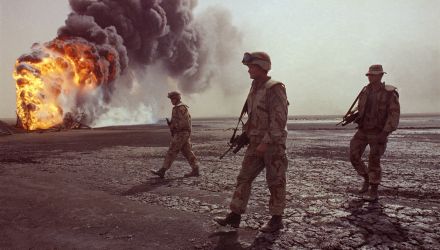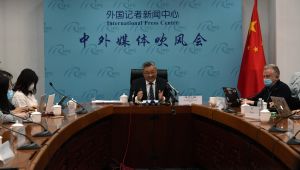International Security is America's leading peer-reviewed journal of security affairs.
International Security Vol. 36, No. 2; FALL 2011
International Security is America’s leading journal of security affairs. It provides sophisticated analyses of contemporary security issues and discusses their conceptual and historical foundations. The journal is edited at Harvard Kennedy School’s Belfer Center and published quarterly by the MIT Press. Questions may be directed to IS@Harvard.edu.
"Muslim 'Homegrown' Terrorism in the United States: How Serious Is the Threat?" By Risa A. Brooks
Despite a surge of arrests in 2009, evidence suggests that Muslim American terrorist activity—a phenomenon sometimes referred to as “homegrown” terrorism—is not on the rise. The 2009 arrest count is likely a combination of more aggressive law enforcement and an accident of data: several long-term plots led to arrests in 2009, and many of the plots involved groups, increasing the number of arrests per incident. In addition, many plots have been detected with the help of inside informants. It is therefore crucial not to overreact to statistics in a way that could alienate the Muslim community.
"States in Mind: Evolution, Coalitional Psychology, and International Politics" By Anthony C. Lopez, Rose McDermott, and Michael Bang Peterson
Viewing coalitions through the lens of evolutionary psychology leads to several hypotheses that can help generate important predictions about group behavior. For example, studies show that humans represent coalitions as a special category of relatively unreliable individual, which has implications for theories on conflict and cooperation among states. The study of psychological mechanisms also indicates that factors such as a man’s strength, whether or not a woman has children, and the size of a coalition can help predict whether or not an individual will support an aggressive foreign policy.
"The Collapse of North Korea: Military Missions and Requirements" By Bruce W. Bennett and Jennifer Lind
The upcoming transition in North Korea’s leadership will not inevitably bring about a collapse of government, but the potential consequences of such an event necessitate advance and combined planning. It is imperative that China, South Korea, and the United States develop a coordinated response, as each of these countries could take destabilizing action to protect their individual interests. A relatively benign collapse could require 260,000 to 400,000 troops to gain control of North Korea’s nuclear weapons, prevent humanitarian disaster, manage regional refugees, and ensure stable U.S.-Chinese relations. Civil war or war on the peninsula would only increase these requirements.
"India's Nuclear Odyssey: Implicit Umbrellas, Diplomatic Disappointments, and the Bomb" By Andrew B. Kennedy
After decades of flirting with nuclear weapons, India finally emerged as a nuclear power in the 1990s. New evidence suggests that India was able to hold off in part because it was able to secure protection through an alternate method: implicit “umbrellas” from superpowers. In the late 1970s, however, U.S. support for India waned as it began to improve its relations with Pakistan, and India lost its other major backer with the dissolution of the Soviet Union. By the late 1980s, India could no longer protect itself through diplomatic means, and acquisition of the bomb became an inevitable response to its security needs.
"Veto Players, Nuclear Energy, and Nonproliferation: Domestic Institutional Barriers to a Japanese Bomb" By Jacques E.C. Hymans
Although Japanese politicians have expressed interest in the bomb in the past, the country’s veto players make acquisition unlikely. Early research viewed proliferation exclusively as a response to security needs. Since the 1980s, most models have included domestic factors, but they have focused exclusively on a single actor whose influence can be negated if veto power is widely enough dispersed. Thus, despite Japan’s intimidating plutonium supply, and its persistence in building a complete fuel cycle, the country’s large and growing number of veto players suggests the continuation of a rigid nuclear weapons policy. As this analysis indicates, historical institutional analysis is crucial to understanding a state’s propensity for proliferation and should be considered alongside other contributing factors.
Compiled by International Security staff.


